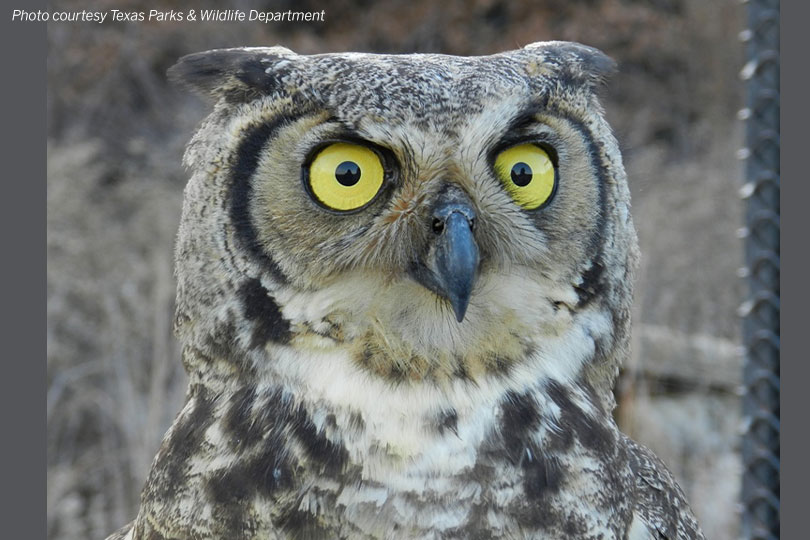The presence of highly pathogenic avian influenza (HPAI) was confirmed in a great horned owl at a rehabilitation center in Wichita County this week. This is the first such confirmed case in a wild bird in Texas, according to the Texas Parks and Wildlife Department.
HPAI is a highly contagious virus that transmits easily among wild and domestic bird species. It was detected in a commercial pheasant flock in Erath County in early April.
It has been detected in 38 states across the country.
HPAI symptoms include diarrhea, incoordination, lethargy, coughing and sneezing and sudden death, although birds infected with HPAI may not always have outward signs of infection.
The virus may spread in various ways, including through contact with infected wild and domestic birds, as well as by contaminated equipment, clothing and shoes of caretakers.
Currently, the transmission risk of avian influenza from infected birds to people remains low, but the public should take basic protective measures (i.e., wearing gloves, face masks and handwashing) if contact with wild birds cannot be avoided.
TPWD recommends contacting the Texas Department of State Health Services for more information on the potential of HPAI to spread to humans and how to reduce your risk of exposure.
Owners of commercial and backyard poultry flocks are encouraged to closely observe their birds.
In addition to practicing good biosecurity, all bird owners should create barriers between their birds and wild birds and report sick birds or unusual bird deaths to state and federal officials. Producers are encouraged to consider bringing birds indoors, when possible, to further prevent exposures, and avoid visits to other premises that also have birds.
Additional information on biosecurity for backyard flocks can be found at tahc.texas.gov/news/brochures/TAHCBrochure_AI-BiosecurityPoultry.pdf.
For the latest on the Texas HPAI response, visit tahc.texas.gov/animal_health/poultry.

